Now that the United States seems to be leaving the Paris Agreement, what’s next for international cooperation on climate change?
While some foreign policy analysts suggest that other countries will also head for the exit, I suspect the opposite will happen. For most countries, Paris does not require that they do much beyond what they were planning anyway. Despite the bold goal of stopping warming well below 2 degrees above pre-industrial levels—a goal that never could be met—Paris has always been about process. Countries make pledges for the efforts they will undertake and then periodic reviews check to see what is working and not. Over time, this process would make deeper cooperation easier. Chuck Sabel, a law professor at Columbia, and I have been calling this experimentalist governance of climate change. Countries, firms, and NGOs are committed to do something about global warming, but nobody really knows what will work and scale—policy experiments and learning are essential. And Paris was designed to achieve just that.
America’s exit isn’t good news for Paris, despite what some people have argued. America almost always plays a key role in building effective international institutions. Without America, leadership is diffused and harder to muster. The list of things left undone in Paris remains very long, and leadership is essential to turning the Paris framework into something truly effective. But the American exit is not fatal to the process. Indeed, the United States, China, France, and others designed Paris so that it would be highly flexible—able to change in response to new realities, even the exit of the world’s most powerful nation. Even if the United States formally stayed inside the Paris agreement, the lack of support for the process from the president on down has severely undermined the country’s ability to lead it. Events like the recent G-7 meeting—which on climate and much else has now become the G6+1—will become more common.
Without America, leadership is diffused and harder to muster…But the American exit is not fatal to the process.
Keeping an eye on China’s rise
Many countries are now jockeying to fill the vacuum that is being vacated by the United States. Most interesting in that arena is China. Across the board, where America is leaving China is saying it will do the opposite, whether it is Xi’s speech in favor of globalization in Davos or China’s steadfast support for the Paris process. So far, this vacuum-filling is more symbolic than substantive; it has not required China or other countries to do much that is different from what they would do otherwise. But rhetoric will give way to reality and the harm to America’s credibility and standing in the world will be palpable.
A place to watch is the delivery of the $100 billion pledge reaffirmed in Paris. This money, promised by the wealthier nations to help the poorer, is a key part of the political glue that holds the Paris process together. The developing countries—especially the least developed countries—were expecting new funds to help them engage with the process and, especially, to help them manage the costs of adapting to a rapidly changing climate. Some of these countries—such as the low-lying island nations—are extremely vulnerable to climate change and aren’t, themselves, responsible for creating these problems.
Through the bilateral U.S.-China process, both Washington and Beijing pledged more than $3 billion in early funding toward this pledge. The United States would send its money through the official Green Climate Fund—an institution now in trouble absent the American cash—but Beijing committed an even larger tranche of money through other institutions over which it had more direct control. Watch for how China spends those funds for signals as to how it will use foreign policy on climate to align its other relationships with countries as well as for signs that the whole process of climate financing is becoming a more decentralized set of overlapping funding mechanisms rather than a big, central process. The traditional power centers on climate policy—such as the United States and Europe—benefit from centralized funds they control; Beijing’s approach is different.
Impacts on the international order
The larger story here is rooted in the diffusion of power in the international system. The rise of Asia that so many have documented so well has not caused decline in America. But it has diffused power and created multiple competing spheres of influence and weakened the incentive and ability for any single country to set the tune. Traditionally, world orders that are multipolar in this sense are more dangerous, and those harmful outcomes to world order may yet come to pass. Today, though, we are seeing the early signs of power diffusion, and Paris is a bellwether. This problem of America’s leadership is structural—it has been a long time in the making and may be a permanent feature of the world order for the foreseeable future—but the deep dysfunctions in America’s domestic politics have exacerbated the problem.
The good news in this is that Trump’s exit, while inflicting harm, would not be permanent. The amount of damage that Trump’s administration can do to U.S. national policy on climate change is large but constrained by rigidities in the political system and in the long-term nature of energy investments. The Clean Power Plan, for example, might be rolled back—but nearly all firms are already implementing lower-carbon investment strategies that are consistent with the plan. And the very toxicity of Trump’s policies to many in the country has made it very popular for other power centers in the United States to do the opposite. On many fronts—climate as well as immigration and public sector funding for research—California, for example, is doubling down. Governor Jerry Brown heads to China in a few days for talks that will focus on climate change perhaps more than any other topic. While Washington burns, the states are alive and well and have become much more positive conveyors of the country’s foreign policy messages.
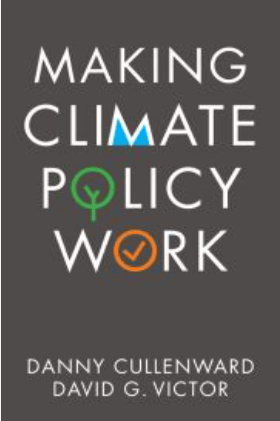
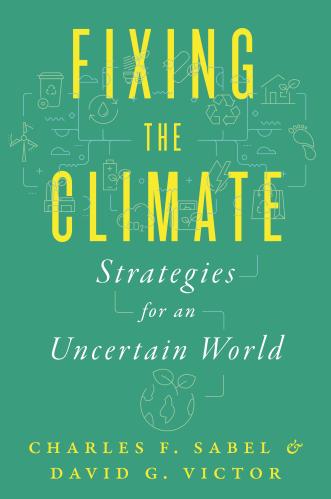
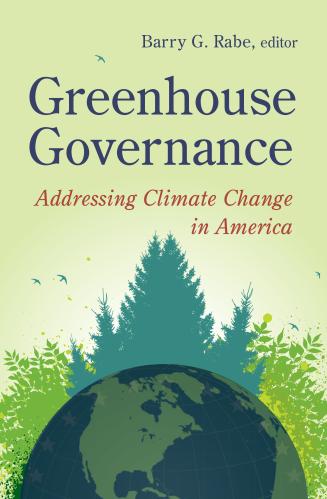
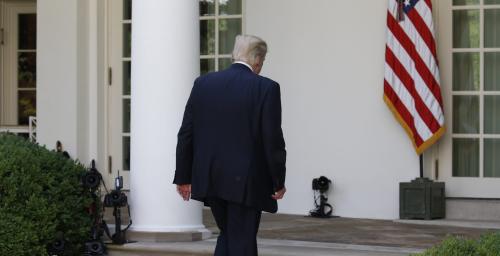
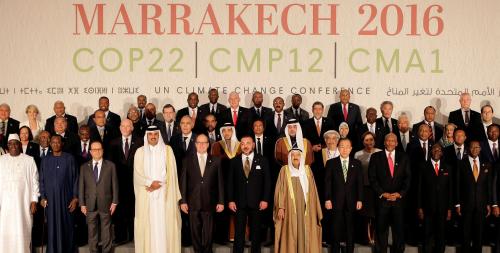
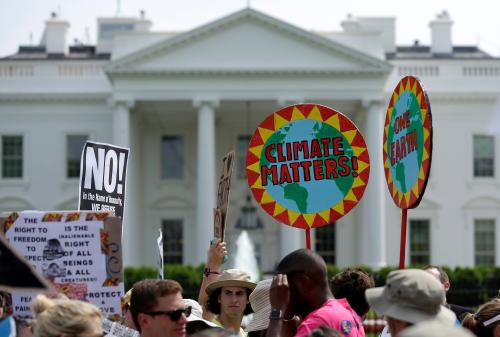

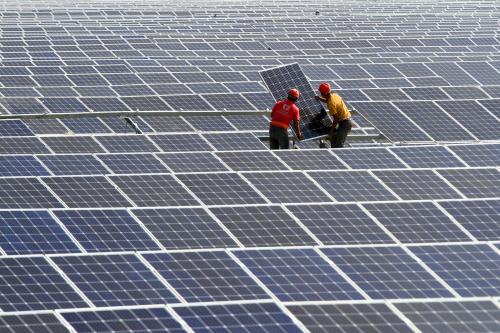

Commentary
America exits the climate stage
June 1, 2017